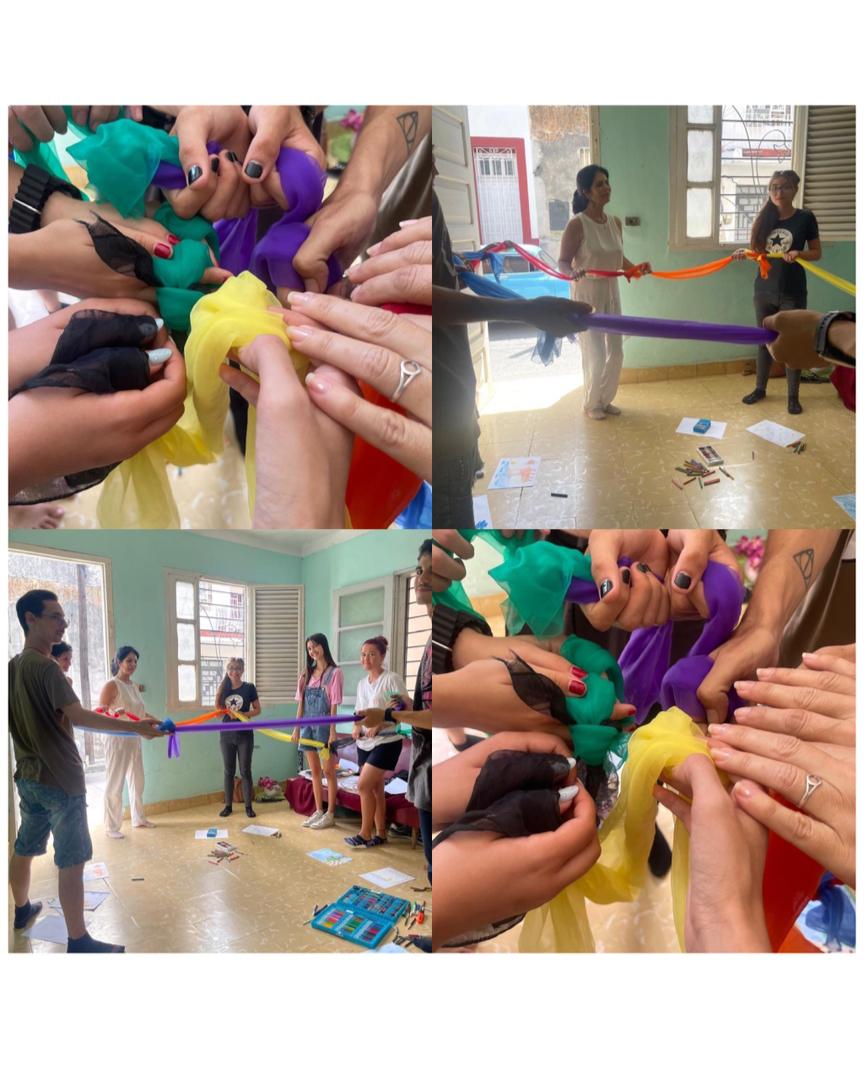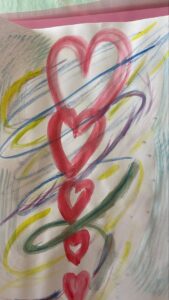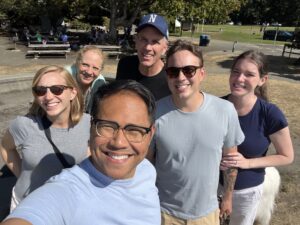
And he took bread, gave thanks, broke it, gave it to them, and said, “This is my body, which is given for you. Do this in remembrance of me.” (Luke 22:19)
“For where two or three meet in my name, I shall be there with them” (Matthew 18:20).
I am often moved by the significance of remembering Christ’s presence each time we gather around the Communion Table, where we celebrate the Lord’s Supper or the Eucharist. The Eucharist is another name for the Lord’s Supper. The term originates from the Greek, via Latin. It means “thanksgiving.” It refers to the body and blood of Christ or its representation through bread and wine. According to the New Testament, the Eucharist was instituted by Jesus during his Last Supper. Days before his crucifixion, he shared a final meal of bread and wine with his disciples during the Passover meal. Jesus instructed his followers that the bread was “my body” and the wine was “his blood.” He commanded his followers to eat these and “do this in memory of me.” I’ve always been curious about the “undocumented” conversations that took place that night, which shaped the disciples after he was no longer physically present with them, but undoubtedly there in Spirit and memory.
One of the questions that late Irish poet and philosopher, John O’Donohue, loved to pose was: “When was your last great conversation with someone?” Good conversation is the enemy of falsity, facade, and shallowness. The moment that two questioning minds and hearts meet in a really great conversation, a portal opens into an immensely exciting possibility. In a challenging conversation with my advisor, we came to terms with the difficult fact that I wouldn’t be ready to defend my doctoral thesis in July, as I had hoped before I became an Ita Linda (grandma). Grounded in reality and supported by my community, I walked through the portal that Creator God opened to deepen the good work begun in me until its completion, in God’s time, not my own.
Over the last four months, I’ve engaged in many transformative conversations with leading expressive arts professors and practitioners, grassroots resilience researchers, and innovative investigators of arts-based community support and healing. Whether on WhatsApp with Expressive Arts in Transition facilitators in Cuba or on Zoom at my dining table in Olympia, WA, with the founders of the European Graduate School and global Expressive Arts Institute leaders in Peru, Costa Rica, Mexico, India, Turkey, and the Philippines, all these table talks were made sacred because of our meeting, encounter, and connection. These Table Talks are shaping and being shaped into what I hope will be a completed PhD dissertation soon. The topic of my research is Piecing Together an Aesthetic Response to Collective Loss. Imagining that we were sitting at a table together, sharing a meal that nurtured both body and soul, we conversed about what helps us respond creatively and wholistically to the daily onslaught of relational heartbreak, existential crisis, and political chaos.
After conducting 14 Table Talk interviews, I continue to process the multiple-page transcripts, which represent 21 hours of conversation. The insights from these interviews, along with nine interviews with participants in two community art processes—a memorial mosaic in Cuba and a collaborative CENTO poem, “Grief Is” —form the basis of my qualitative research. I am discovering several common themes and nurturing strategies to piece together an aesthetic (artful) response to collective loss. Though you’ll have to wait for the finished project, I wanted to share a few sneak peeks into some of the collective wisdom I’m gathering. Cento is a work of poetry composed of various lines taken from different poems or written sources. The word “cento” is derived from a Latin word meaning “patchwork garment.” Consider the following a Cento from a few of the last great conversations I had recently.
“Do what you can; other people will do what they can. And you keep going, even when it looks like nothing’s gonna happen. The meaning of Torah is… Go forward into the future with courageous confidence. Or into the future with courage and confidence. That’s what I would say to you.” -Steve Levine, Co-founder of the European Graduate School.
“For me, without guidance from God, I can’t live. I pray, ‘Just show me. What should I do next?’ I really do meet the people that I need to meet, and I’m still connecting, soul to soul. These tiny encounters connect this intimacy of soul to soul in a global world.” -Gina Alfonzo, Co-Founder and Director of The Arts and Health Institute Philippines
“Do we only sit at tables with people? What if we sit at a table with our own ideas? What is it to sit at a table with uncertainty? Are we hospitable to uncertainty? Within the expressive arts, you can flip it to ask that type of question. It’s wider than just conversation with people; it’s conversation with Oneself, where I can explore ideas and ask both sides of a question. I can animate these things as well. And because of that, I step in differently, and it doesn’t have to be because I’m interpreting something. That in itself is enough. And that’s what I love about the expressive arts.”-Shabrae Jackson, Founder of Collective Tapestries and Co-creator of Co-Lab Cuba
“Ultimately, the things that impact us most are the ones that outrage or bother us. Those are the things that matter to us. They’re important. We want to respond so that things can be different. We want to change them. James Hillman even talked about how anger can be an expression of love. In the sense of how it comes about. That discomfort of wanting to change something, because it’s really valuable. Because it arises precisely from a reaction. It’s actually a loving response.”-Martín Zavala, Co-founder TAE Peru.
“Perhaps the senses are shut down in extremely traumatic situations. How can we reignite our senses and be connected to life again? To be able to not only notice pain, but beauty as well? I truly believe there’s a whole movement of kindness that accompanies this movement of trauma. The expressive arts belong in that place where we are tending to kindness, tending to care.” -Gopika Dahanukar, Founding Director of Swahansa Expressive Arts, India.
“What would the world be like without songs and stories and images? I can’t even imagine it. Seeing art is essential to human life. It’s not add-ons or extra things, but central to life.”– Ellen Levine, Co-founder of the European Graduate School and PhD. Advisor
I heard God’s voice in these conversations, and I see God’s presence in you. Let’s plan to talk soon. In the meantime, I would appreciate your prayers for the following joys and concerns:
Joys:
*Two grandbabies coming, one in October and one in November
*Gary’s new call with Panther Lake Community Church in Kent, WA
*September’s graduation of 21 new Expressive Arts in Transition facilitators from our Co-Lab Cuba cohorts in Santiago and Holguin
Concerns:
*My sister Robbie, who has serious health challenges
*Alexander, the husband of one of our graduates in Santiago, who is suffering from metastasized lung cancer
*The impact of war, famine, poverty, violence, human rights violations, and mental distress on many of my loved ones, both near and far.



Thank you for making my world more beautiful and my table more wholesome,
Mylinda